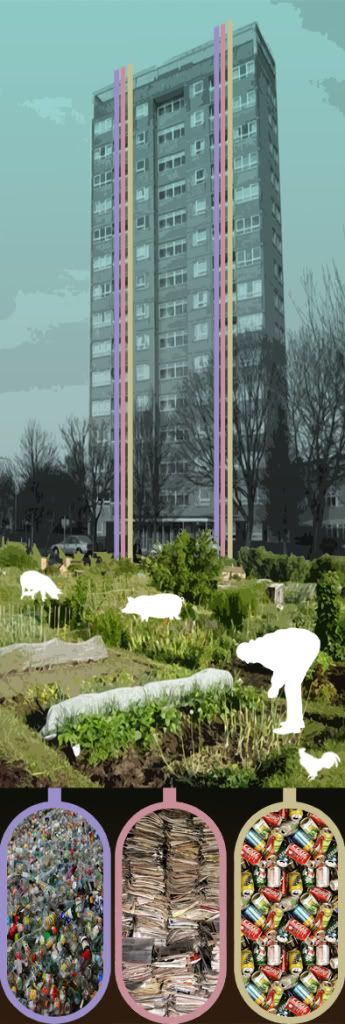"This is Friday 17th October and these are the headlines from our meeting with Zoe Barlow and Ian Robertson at Sheffield Homes":
- Fly-tipping is the most significant problem on flatted estates and puts the greatest strain on Sheffield Homes’ resources.
- The perceived solution to fly-tipping is an upgrade to infrastructure. The current system was designed in the 1950s/60s before ‘black bin’ culture arrived.
- The majority of tenants dispose of their waste in an appropriate manner, only a minority do not. In a recent survey over 60% of Sheffield Home tenants expressed a desire for recycling facilities.
- Recycling is not just a ‘nice’ idea, but regarded as having the potential to relieve strain on black bin waste and thus improve the efficiency of the system.

- Differences and disparities in building types and waste disposal provision mean the system is complex and not easily comprehended (Refer to the rough diagram above, which Zoe and Ian gladly helped us create!).
- Finally, one idea that Zoe had was to introduce a scheme whereby children on the estates assist elderly residents in disposing of their waste. This would help tenants for whom mobility was a problem, but children could also act as ‘educators’ and ‘enforcers’.
[A full summary of the interview (Compiled Q&A) will be posted earlier next week on archstud, we recommend all members give it atleast quick read]






















